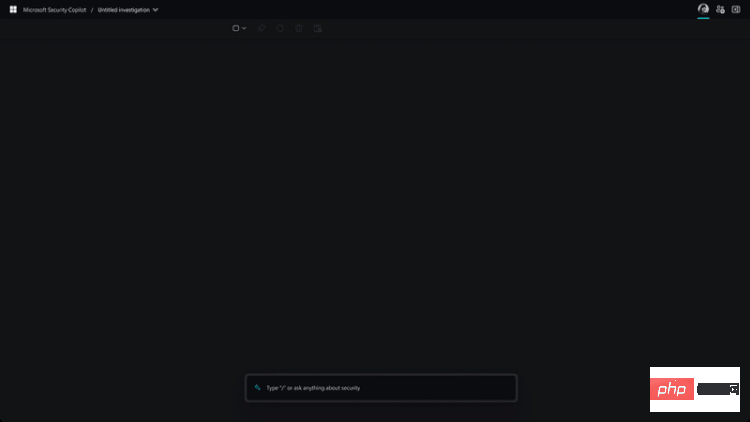Home >Technology peripherals >AI >Microsoft announces Security Copilot: a GPT-4 AI assistant tailored for cybersecurity experts
Microsoft announces Security Copilot: a GPT-4 AI assistant tailored for cybersecurity experts
- WBOYWBOYWBOYWBOYWBOYWBOYWBOYWBOYWBOYWBOYWBOYWBOYWBforward
- 2023-04-12 09:55:021404browse

News on March 29, Microsoft is now turning its attention to cybersecurity after announcing an artificial intelligence-powered Copilot assistant for Office applications.
Microsoft has launched a new artificial intelligence assistant called Security Copilot, designed to help cybersecurity professionals. This assistant helps defenders identify network intrusions and better understand the vast amounts of signals and data collected every day.
Security Copilot’s core technology is OpenAI’s GPT-4 generative artificial intelligence and Microsoft’s own security-specific models. Security Copilot looks like a simple dialog box, like other chatbots. You can ask "What security incidents have occurred in my organization?" and it will give you a summary. But behind the scenes, it leverages the 65 trillion signals Microsoft collects every day, as well as its security expertise, to allow security professionals to track threats.

Security Copilot is designed to complement, not replace, the work of security analysts, and also includes a sticky board feature that allows colleagues to collaborate and share information. Security professionals can use Security Copilot to conduct incident investigations or quickly summarize incidents and help with reporting.
Security Copilot accepts natural language input, so security professionals can ask for a summary of a specific vulnerability, enter files, URLs, or code snippets for analysis, or obtain event and alert information from other security tools. All questions and answers are saved so investigators have a complete audit record.
Results can be pinned and summarized into a shared workspace so colleagues can perform threat analysis and investigations together.
One of the most interesting aspects of Security Copilot is the prompt book feature. It is essentially a set of steps or automated functions that can be packaged into a single easy-to-use button or prompt. For example, there could be a shared prompt for reverse engineering a script so security researchers don't have to wait for someone on their team to perform this type of analysis. You can even use Security Copilot to create a PowerPoint slide outlining incidents and attack vectors.
Just like Bing, when security researchers ask for the latest vulnerability information, Microsoft clearly identifies the source of the results. Microsoft used information from vulnerability databases from the Cybersecurity and Infrastructure Security Agency, the National Institute of Standards and Technology, and Microsoft's own threat intelligence database.
But that doesn’t mean Microsoft’s Security Copilot is always right. “We know that sometimes these models can go wrong, so we provide the ability to make sure we have feedback,” said Chang Kawaguchi, AI security architect at Microsoft. The feedback loop is much more complex than a like or dislike on Bing. "Because there are so many ways it can go wrong," Kawaguchi explains. Microsoft will let users answer what exactly went wrong to better understand any errors.
While Microsoft’s Security Copilot looks like a chatbot like Bing, the company limits it to security-related queries. You can't get the latest weather information here or ask it what its favorite color is.
According to IT House’s understanding, Microsoft began to provide a new Security Copilot preview version to “several customers” today, and the official has not announced a date for wider rollout of this technology.
The above is the detailed content of Microsoft announces Security Copilot: a GPT-4 AI assistant tailored for cybersecurity experts. For more information, please follow other related articles on the PHP Chinese website!
Related articles
See more- Technology trends to watch in 2023
- How Artificial Intelligence is Bringing New Everyday Work to Data Center Teams
- Can artificial intelligence or automation solve the problem of low energy efficiency in buildings?
- OpenAI co-founder interviewed by Huang Renxun: GPT-4's reasoning capabilities have not yet reached expectations
- Microsoft's Bing surpasses Google in search traffic thanks to OpenAI technology

